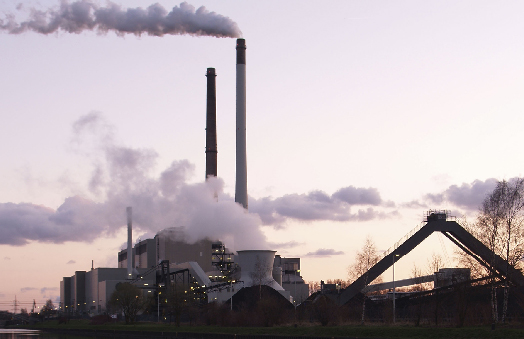
Fueling the Fossil Free Debate
Fossil Fuel Divestment
In recent years, divesting from fossil fuel has become a popular topic. An increasing number of colleges and universities, religious institutions, cities, and countries have committed to fossil fuel divestment. Fossil fuel is a general term for buried combustible geologic deposits of organic materials formed by decayed plants and animals that have been converted to crude oil, coal, natural gas, or heavy oils by exposure to heat and pressure in the earth's crust over hundreds of millions of years. Critics of fossil fuel corporations not only blame them for manufacturing practices that harm the environment and lead to global warming but also hold them largely responsible for the political gridlock that impedes the passage of climate legislation.
On 5 June 2015, Norway's Parliament voted to order its enormous US$890 billion pension fund, one of the largest sovereign funds in the world, to shift its holdings out of companies whose business rely at least 30 per cent on coal. The decision seems paradoxical, given that Norway is a major producer of oil and gas. Other large institutions that have announced divestment from fossil fuel stocks include the Church of England, the French insurer AXA, and the philanthropic Rockefeller Brother Fund, founded by the Rockefeller family in the US, whose fortune derives from Standard Oil.
Divestment Movement in Academia
The movement on college and university campuses to divest from fossil fuel investments began in the US about three years ago. Many of the arguments for and against divestment are reminiscent of the debates on campuses about divestment from South Africa in the 1980s and 1990s, and from Dafur in 2007 and 2008. The student activists also employ similar tactics from previous divestment campaigns, from making public statements, to hosting forums, to protests, to holding discussions with administration.
On 9 April 2015, MIT hosted a campus-wide debate on the pros and cons of fossil fuel divestment. The debate, attended by hundreds of people from MIT and elsewhere, featured two teams of experts in a classical debate format and was moderated by Tony Cortese of the Intentional Endowments Network. The two teams—each consisting of an MIT faculty member, a professor from another institution, and an executive from an investment firm—quickly found that they agreed on the seriousness of climate change and the need for strong actions to curb greenhouse-gas emissions. They also agreed that one of the most important policy measures to address the issue would be the imposition of a price on the use of fossil fuels, such as a carbon tax. However, the two teams differed on whether an MIT divestment from fossil fuel companies would help address climate change in any meaningful way.

Institutions that Signed on
Many prominent colleges and universities world-wide have signed on to the divestment position. On 6 May 2014, the Board of Trustees at Stanford University announced that Stanford would not make direct investments in approximately 100 publicly traded companies for which coal extraction is the primary business. On 18 May 2015, Oxford University announced a limited divestment policy under which the university would exclude companies involved with the most polluting fossil fuels—coal and tar sands—from its direct investments. Before that, the Syracuse University and Sydney University have made their divestment commitments in March and February 2015 respectively.

Institutions that Have Not Committed
While some colleges and universities have pledged their commitment to divestment, many other institutions have pushed back against the divestment movement. Drew Gilpin Faust, the president of Harvard, stated in a letter addressed to the university community in April 2014, that while climate change is an important issue, the university should be very wary of steps intended to instrumentalize the university's endowment in ways that would appear to position the university as a political actor rather than an academic institution. She stated that the university can address climate change more effectively through research, education, and its own practices, and that dropping fossil fuel investments is not warranted or wise.
Middlebury College, where 350.org (the organization that has been successfully advocating for fossil fuel divestment on college campuses in North America and Europe) founder Bill McKibben teaches, has also resisted student pressure to divest. And at Pomona College in California, President David W. Oxtoby, a climate researcher himself, called the divestment activism a distraction from efforts that could bring about real change, such as getting government to tax oil and gas to reduce consumption. He said in an interview that schools and institutions that announce divestment decision often do so in symbolic moves with no real sacrifice or change of policy.
Hong Kong
In Hong Kong, Dr. Eddy Lee Wai-choi, famous sci-fi writer and a former scientific officer at the Hong Kong Observatory, is campaigning for local universities to divest from fossil fuel.
He says, 'The scientific community has long reached a consensus about global warming and issued warnings about its impacts. But vested interest corporations have been distorting and muddling the facts in attempts to protect their interests. As a result, there are people who still think global warming is the product of the alarmist rhetoric of environmentalists; some even think it's a big hoax. Understanding the problem correctly, therefore, is the first step to combatting the crisis. The financial crisis of 2008 has alerted the world that the affluence of modern civilization is built upon staggering debt. Similarly, scientists tell us that our prosperity is constructed on a mountain of ecological debt. To reverse the situation, it is imperative that we replace fossil fuel with renewable energy and create 'zero-growth prosperity'.

As overseas examples show, whether universities sign on or not, they are aware of the grave urgency of climate change, and many of those that did not commit only did so because they believe that climate change can be addressed more effectively by other means.


